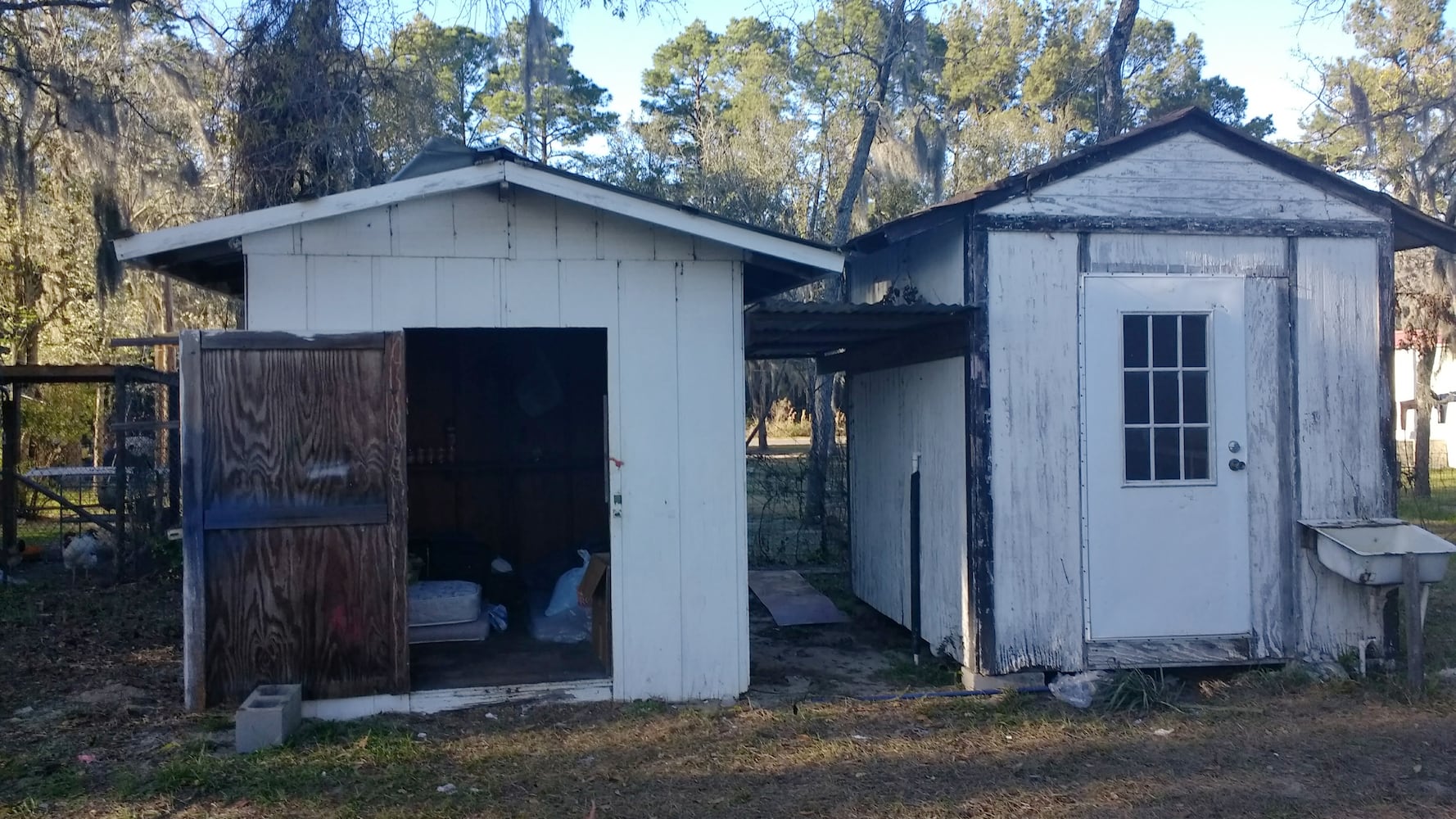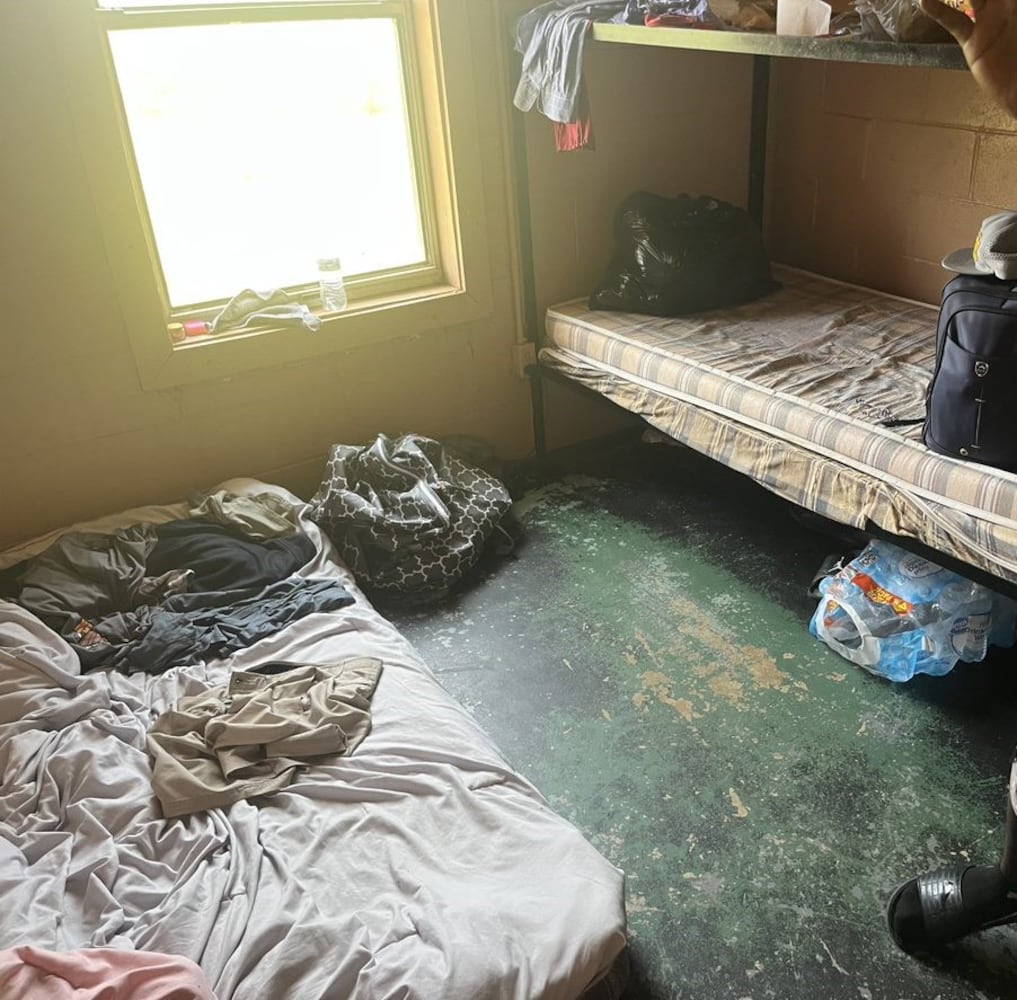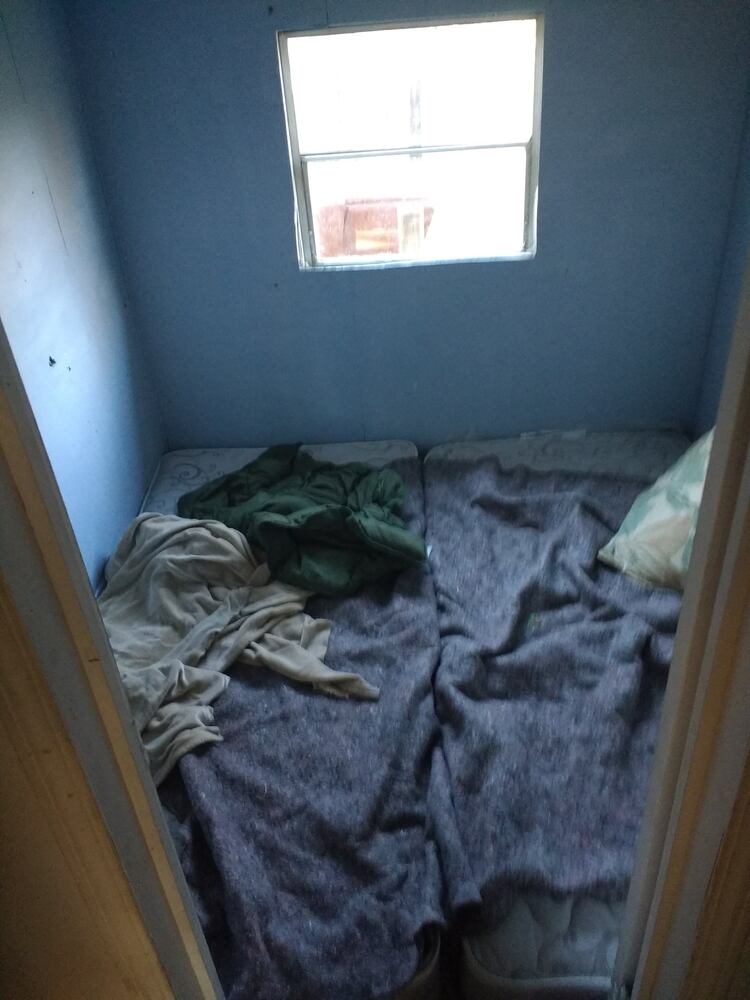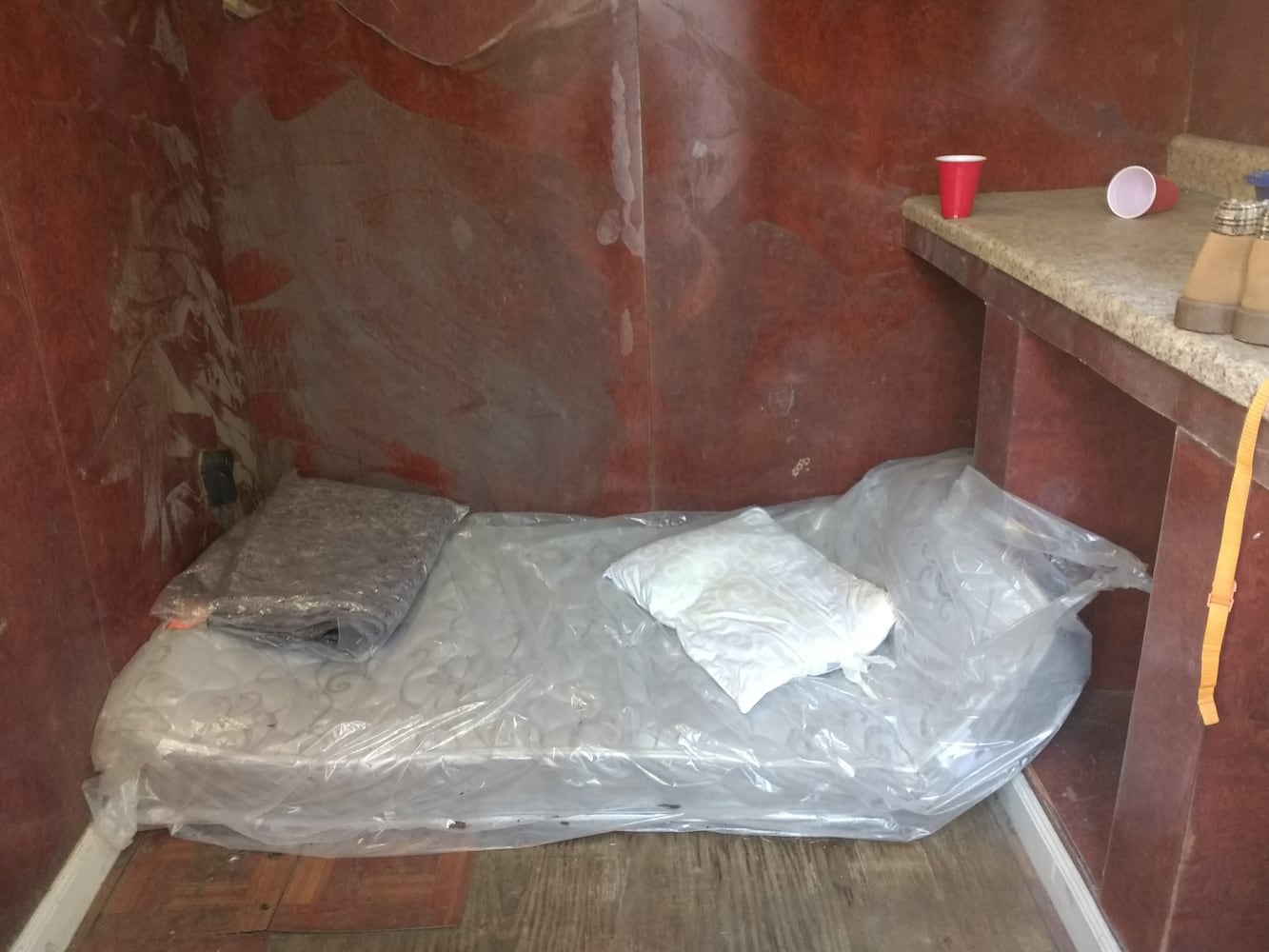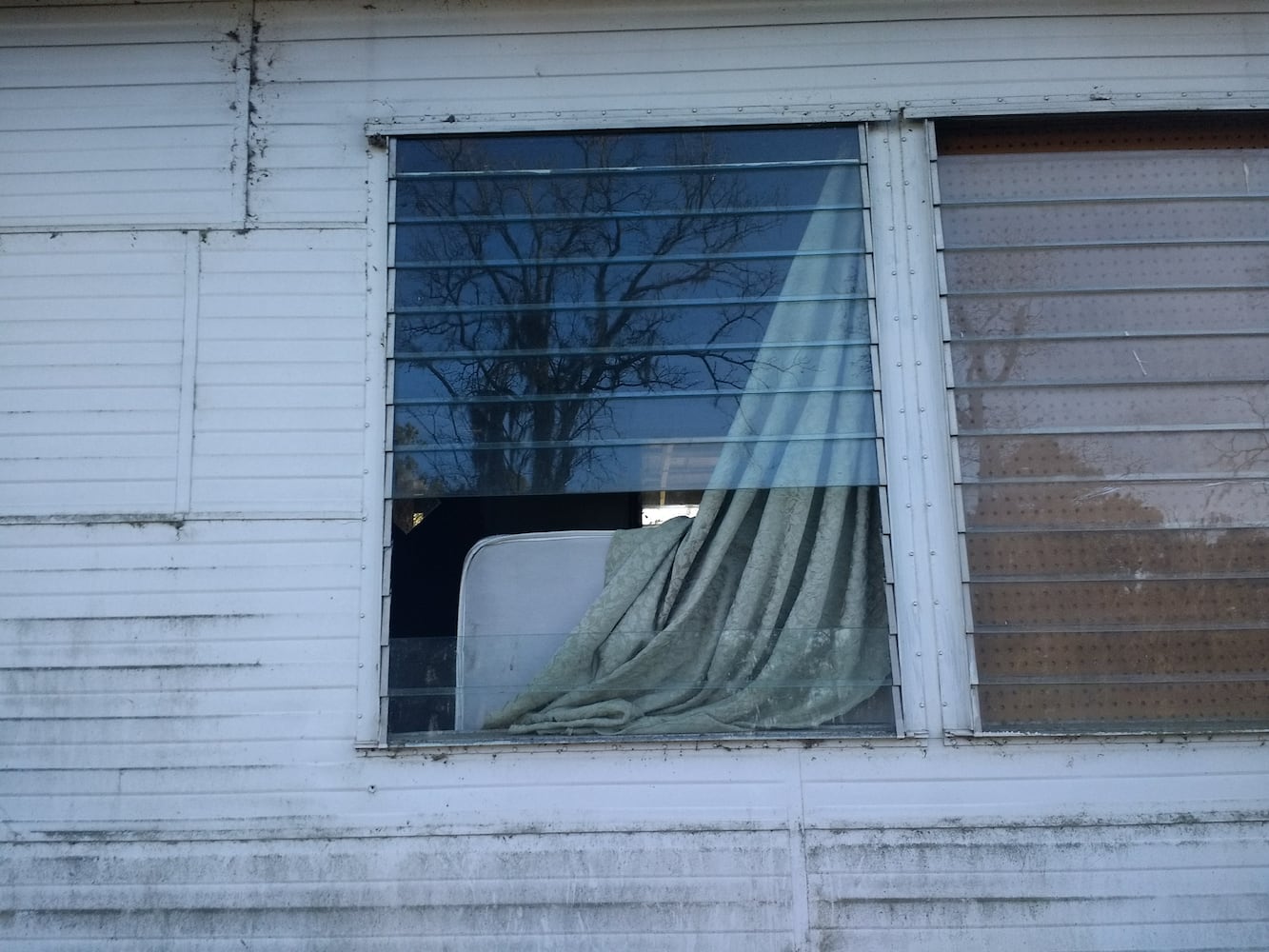When Alejandro traveled from Mexico to South Georgia to work as a temporary farmworker, he says he didn’t expect to find luxury at the employer-provided housing that was awaiting him. Still, he was disappointed.
After he was done with work picking chili and bell peppers, he and other members of his crew were driven in a yellow school bus to a shack with no air conditioning 40 minutes away from the farm. Nearly 30 workers crammed into four small bedrooms and shared a bathroom. “It was total chaos inside that house.”
Alejandro, a Mexican national, arrived in South Georgia in March 2022 through the H-2A program, which allows foreign farmworkers to legally come work in the U.S. for months at a time. Designed to address labor shortages without jeopardizing the employability of domestic workers, the H-2A program imposes significant costs and hassle on the employers who turn to it.
Among the more onerous requirements is that H-2A employers must give workers free housing — and that housing must be up to code, something individual state governments play a role in verifying.
According to a U.S. Department of Labor official, housing violations are among the most common ways employers break H-2A program rules.
Conditions inside farmworker housing in Georgia may be of particular concern, given the state had as of September just three inspectors tasked with visiting and certifying housing units — fewer than other states with smaller H-2A programs.
Credit: Courtesy of Georgia Legal Services Program
Credit: Courtesy of Georgia Legal Services Program
In fiscal year 2022, the state’s inspectors were responsible for checking on 2,469 housing units, according to the U.S. Department of Labor.
“There’s a lot of terrible housing in Georgia,” said Solimar Mercado-Spencer, the director of the farmworker rights division of the Georgia Legal Services Program, which provides legal aid to farm workers. “You see a lot of housing that it should not be, shouldn’t be approved, but is being used.”
More farmworkers, fewer inspectors
Georgia regularly ranks among the top three states with the most H-2A workers. In fiscal year 2023, 37,536 came to work on Georgia farms, staying in housing units ranging from barracks or dormitories to mobile homes or motels.
Across the state line, North Carolina received fewer H-2A workers than Georgia — 26,146 in 2023 — but it has eight H-2A housing inspectors, according to the North Carolina Department of Labor, five more than Georgia. Washington employs six inspectors and welcomed 35,680 workers this year, the Employment Security Department told The Atlanta Journal-Constitution.
Over the years, federal investigations have uncovered a host of issues inside Georgia’s H-2A housing, including mold and water damage, dangerous exposed wiring, lack of kitchen facilities, and more. Local farmworker advocates say broken toilets, broken sinks, one-inch foam mattresses and over-crowding of the kind Alejandro described are also common.
According to a lawsuit filed by a group of farmworkers in April 2023, employees at one Georgia farm were forced to live in crowded, dirty trailers with no air conditioning, leaking roofs and rats and cockroaches — some trailers had no beds, forcing workers to sleep on the floor. At another farm, worker housing had holes in the floor and fire alarms that didn’t have batteries, according to a federal investigation that triggered over $200,000 in fines.
H-2A workers have even been housed in school buses, according to Dawson Morton, a lawyer who represents agricultural workers. Some of Morton’s clients lived in those buses in 2015.
“It was definitely not lawful, but it wasn’t hard to see them if you actually went and did any inspection, they were right there in the open, a bunch of yellow school buses,” he said.
“It makes you think that nobody went or they didn’t care.”
H-2A program enforcement is spotty, advocates say. In addition to levying fines, the federal government can also temporarily ban employers from hiring H-2A workers. But bans are easy to evade. There are currently seven Georgia employers on the federal H-2A “debarment list,” who are disqualified from using the program. The employers are a mix of farmers and labor contractors who bring workers to the farms.
Mercado-Spencer says there are recurring issues in Georgia’s H-2A housing stock.
Sometimes, “when the workers arrive, the places are already dirty because it was never cleaned,” she said. “And then there’s bugs and roaches and crap all over the place. There’s trash outside. Dirty water pooling outside.” Safety and health standards for H-2A housing “really have not been met in Georgia because the system is broken, has been broken for many years,” she added.
“The workers, they get here and they say, ‘These are terrible conditions, I don’t even live like this in Mexico,’” said Alma Young, who works with H-2A workers in the state through her role as coordinator with the United Farm Workers Foundation. She added that having three farmworker housing inspectors for the entire state seems “highly inadequate.”
In Georgia, the agency tasked with administering the H-2A program locally and conducting inspections is the Georgia Department of Labor. Agency spokesperson Shawna Mercer confirmed GDOL receives no state funding to cover the expenses of its H-2A related work – it’s wholly dependent on grant money from the federal government. The number of H-2A housing inspectors has remained low even as that federal funding has swelled since the beginning of the Biden administration. According to the U.S. Department of Labor, its Office of Foreign Labor Certification allocated $831,118 to GDOL in fiscal year 2023 to process employer requests for H-2A workers, inspect housing, and collect wage data. Three years’ prior, that grant was just $480,000. Mercer did not respond to a question from the AJC about how the agency spends its grant money.
Three housing inspectors “seems like a really small number of people to do the number of inspections that would be required every year, at least to do them thoroughly,” said Jim Knoepp, senior supervising attorney for the Southern Poverty Law Center’s Immigrant Justice Project.
This isn’t the first time GDOL’s performance protecting the rights of migrant farmworkers has been called into question.
Two years ago, South Georgia made national news when federal investigators uncovered a criminal ring that allegedly subjected H-2A workers to “modern-day slavery,” with migrants being forced to dig for onions with their bare hands under the threat of gun violence. According to government officials, farmworkers were held in degrading living conditions, with dozens of migrants sharing a single-room trailer that had no safe drinking or cooking water. During a sentencing hearing tied to that case, a federal law enforcement officer testified that GDOL officials were bribed by the alleged criminal organization accused of abusing the workers. The agent noted that the bribery was related to farmworker housing inspections, according to USA Today.
Among the 24 people indicted in that South Georgia bust was a former GDOL employee whose job duties included inspecting farmworker housing. Officers also searched the home of the then-current GDOL worker who was in charge of advocating for migrant farmworkers. The GDOL advocate was never accused of wrongdoing or charged with a crime.
There are at least two open investigations into GDOL, Georgia’s Interim State Inspector General has confirmed to the AJC, but he would not reveal the subjects of the investigations. One is led by the Georgia Office of State Inspector General and the other by the U.S. Department of Labor’s Office of Inspector General.
In 2024, another Georgia agency will take over the administration of the H-2A program: the Technical College System of Georgia. That will make Georgia a national outlier, as states tend to tap agencies solely focused on labor or employment to deal with H-2A.
Differing views on GDOL inspections
Before an employer brings in H-2A workers to Georgia, an inspection of their housing by GDOL is a required step.
The inspections should not hold up recruitment of the workers, according to Chris Butts, executive director of the Georgia Fruit and Vegetable Growers Association. He says farmers want to provide workers with “a space that is safe and healthy,” and that the preliminary inspections “make sure they’ve got things right.”
“For the most part, we feel like [GDOL] does a good job and they’re timely,” Butts said. “It’s really important to us that we have labor available when the crops are ripe and ready to pick them. ... It is a very thorough inspection.”
Credit: Courtesy of Georgia Legal Services Program
Credit: Courtesy of Georgia Legal Services Program
Some states will also send out inspectors to visit housing units and make sure they are still up to code after workers move in. But advocates say those spot inspections or “field checks” do not take place in Georgia. GDOL did not answer a question from the AJC about field checks.
Workers themselves can file a complaint with the U.S. Department of Labor’s Wage and Hour Division. For workers who are entirely dependent on their employer for their salary, visa and housing, it’s unlikely they would complain, said Antonio De Loera-Brust, the communications director at United Farm Workers.
“Workers don’t complain because (if) they rock the boat, they don’t get called back next year. The number one concern of H-2A workers is just, ‘Can I, like, will I get my visa again next year?’” he said.
According to the U.S. Department of Labor official, who was made available by the department for an interview by the AJC on background only, complaints about housing tend to come from third parties who have discovered the deplorable conditions. Sometimes, the official said, authorities find employers illegally charging workers for their housing, or using units that were never pre-approved. Because many of the most common violations involving crowding and unsanitary conditions take place while workers are in the housing, inspections that take place before workers move in — such as those conducted by GDOL — are less useful as an enforcement tool.
As for Alejandro, the H-2A worker who traveled from Mexico to work in South Georgia, he eventually left his employer after three months because he was unsatisfied with the limited work hours he was receiving. The AJC is withholding Alejandro’s last name because he stayed in the country after the expiration of his H-2A visa.
”From my point of view and those of my workmates, those weren’t optimal living conditions at all.”
Credit: Courtesy of Georgia Legal Services Program
Credit: Courtesy of Georgia Legal Services Program
Keep Reading
The Latest
Featured
